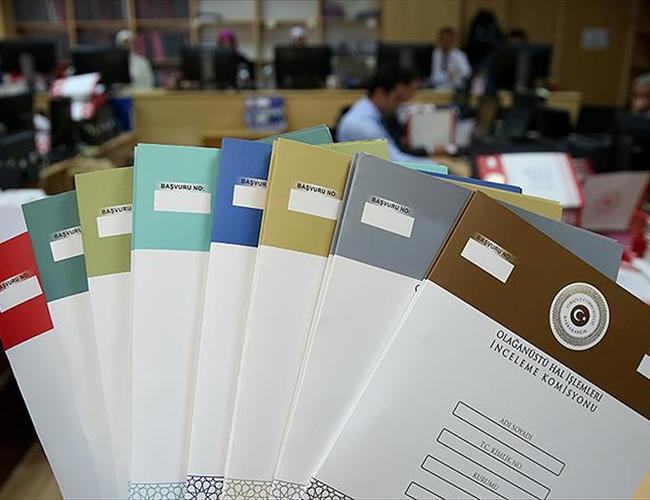
An inquiry commission overlooking measures taken during the state of emergency in Turkey has delivered decisions for more than half the applications filed by people who say they’ve been unlawfully treated. The number of applications submitted to the commission was 126,000 as of March 15.
The number of the decisions delivered by the commission is 63,100, while the number of pending applications is 62,900, according to figures provided by the Inquiry Commission on the State of Emergency.
The commission accepted 4,750 of the decisions as of March 15 and rejected 58,350 of them among the delivered 63,100 decisions.
The commission was set up on Jan. 23, 2017 by an executive order and started its decision-making process on Dec. 22, 2017 to investigate controversial state of emergency measures in Turkey.
The commission reviews and concludes the applications concerning the measures adopted under state of emergency decrees, such as the dismissal of public officials, cancellation of scholarships, annulment of the ranks of retired personnel and the closure of some institutions on accusations of terror links.
By the decrees issued within the scope of the state of emergency, a total of 131,922 measures were taken, 125,678 of which were dismissals from public service, according to the commission’s figures.
The decisions of the commission are circulated to the institutions where the persons last took office for the purpose of being notified. The procedure of appointment of those whose applications have been accepted is carried out by the institution where they last took office and the Council of Higher Education where relevant.
An annulment action may be brought before the Ankara Administrative Courts determined by the Council of Judges and Prosecutors against the decisions of the commission and the institution or organization where the relevant person last took office, within a period of 60 days as from the date of notification of the decision.
The commission was formed after warnings made by the European Court of Human Rights (ECHR) over the accumulation of applications. The 24,000 applications rejected by the ECHR, which cited the existence of the emergency panel, were sent to the commission.